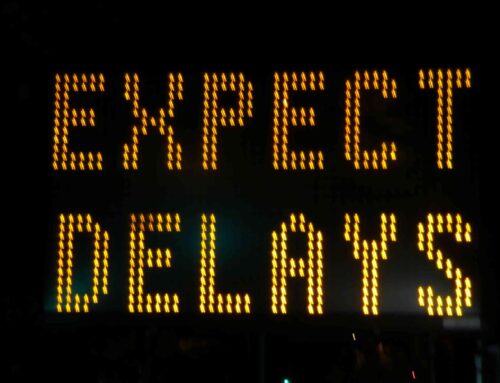State agencies in full swing establishing public records rules
If you are journalist or citizen who makes public records requests to state agencies, now is the time to pay attention to the public records rules being developed regarding that access.
I’ve listed the agency email addresses and deadlines to submit below.
Two state agencies have already held hearings and (and finished soliciting written comments) for their proposed rules: the Department of Transportation and the Department of Mental Health and Substance Abuse Services.
Coming up are:
- Aug. 30, Bureau of Workers’ Compensation in the Department of Labor and Workforce Development
- Sept. 18, Tenncare
- Sept. 24, Department of Revenue
- Sept. 24, Department of Safety and Homeland Security
- Sept. 28, Tennessee Housing Development Agency
- Oct. 3, Department of General Services
In reviewing the rules filed so far (and there will be many more in coming months), I’ve been looking for rules that:
- Create a process that would likely result in unreasonable delays to access public records.
- Contain unclear language.
- Make it expensive to get copies or to inspect public records.
- Prohibit someone who is inspecting a record from using their cell phone or camera from taking photos of public records, including those who might want to take video of the records.
- Require a driver’s license or some other identifying documentation as a condition of accessing public records.
State agency rules are particularly important if you don’t live in Nashville
Charges for copies and delivery of public records is especially important for state agencies, because many records are housed in Nashville. And unless you live in the Nashville area, you won’t easily be able to come down and inspect records for free. You may have to request copies be sent to you, and that can trigger charges.
Here are some overall observations.
- Some — not all — agencies want to require that you mail them or present in person a copy of your driver’s license, proving you are a resident of Tennessee, before they will consider your public records request.
- Some agencies prohibit taking photos of public records.
- Some have waivers for records determined to be in the “public good,” but some do not.
- A couple appear to insert language that suggests inspection will not actually be for free — that you may have to pay for labor and other costs of compiling records to make the copies that you are going to inspect.
- Some have threshold amounts for any per-hour or per-page fees before you will be charged. But not all of them.
In the two hearings already held, TCOG has advocated for allowing personal equipment, such as a camera or cell phone, to take pictures of public records. Also, we’ve advocated that identification requirements are not necessary, even if the agency has a policy to not fulfill some requests from non-residents, and they likely delay access. We also would like to see fee waiver policies, particularly for records being requested for public interest purposes — such as by journalists, citizens or civic groups — as opposed to commercial purposes.
If you agree with us or have other concerns, I encourage you to make comments by emailing the contacts below.
Below are highlights from the agencies whose hearings are upcoming. Click on the links to read the entirety of the proposed rules. Keep in mind that every state agency has to do this, so we will be seeing more of these filed in coming months.
Bureau of Workers’ Compensation proposed rule
Contact for comments: Troy Haley [email protected]
Hearing: 10 a.m., Aug. 30, Tennessee Room, 220 French Landing Drive, 1-A
Highlights:
- Identification proving residency may be required but policy does not say it will be required in every instance.
- No “public good” waiver.
- Photographs not allowed of public records. Person cannot use any personal equipment to make copies.
- $10 search fee, which includes the first 25 pages. After that, it’s 25 cents per page. In addition, per-hour labor fees after the first hour.
Contact for comments: George Woods [email protected]
Hearing: 9 a.m. Sept. 18, 310 Great Circle Road, Conference Room 1 East A
Highlights:
- Requires driver’s license or some other identification proving residency as a condition of inspecting or getting copies of public records.
- Language suggest there may be charges to inspect if the agency makes copies for you to inspect. Language is unclear.
- Allows photography of public records (but again, you may have to pay if they had to make copies for you to inspect).
- If fees are under $50, they won’t charge you anything.
- Includes a waiver for records in the “public good.”
- Charge for shipping / mailing is $15.
- Free duplication if you want fewer than 10 copies.
Contact for comments: Lauren Fields [email protected]
Hearing: 9 a.m. Sept. 24, Andrew Jackson Building, 500 Deaderick Street
Highlights:
- Identification proving Tennessee residency may be required to access public records.
- You cannot use personal equipment to make copies. Presumably that includes taking pictures with your cell phone.
- If the calculated per-hour cost of fees and labor totals less than $25, those charges would be waived.
- No labor will be charged for the first 25 hours. (This is a generous labor threshold compared to others. I haven’t seen one this high and could likely mean very few charges for most public records requests. That’s wonderful! Or is it a typo?
Department of Safety and Homeland Security
Contact for comments: Kyle Turner [email protected]
Hearing: 2 p.m. Sept. 24 at Tennessee Tower, Nashville Room, 312 Rosa Parks Avenue, 3rd Floor
Highlights:
- Language is a little unclear, but it appears they may reserve the right to charge you to inspect records if they had to make copies of records in the process of making them available for you to inspect.
- Photo identification, such as driver’s license, is required to prove Tennessee residency as a condition. They even say they may check your identity through their own driver’s license system.
- You cannot use personal equipment to make copies of public records, such as a personal copier or scanner, but a requestor can use a cellphone to take pictures or video if the entire request is equal to or less than 25 pages.
- They will email you the records if the total cost for labor and copying is less than $10.
- Some things will be provided for free, and others have a specified cost. For example, incident reports are free.
- The may reduce or waive fees upon a written request for a waiver.
Tennessee Housing Development Agency
Contact for comments: Bruce Balcom, [email protected]
Hearing: 9 a.m. Sept. 28, 502 Deaderick Street, Ground Floor Hearing Room
Highlights:
- Requires proof of Tennessee citizenship with a driver’s license or some other form of identification.
- You may have to pay to make copies of records with your own equipment, presumably such as by taking a picture with your phone.
- The rules say there is a threshold amount under which they won’t charge frees for copies and labors, but they don’t list the amount.
- No waiver for records in the public interest or for the public good.
Department of General Services
Contact for comments: Christy Allen [email protected]
10:30 a.m. Oct. 3, Tennessee Tower, 3rd floor meeting room G, 312 Rosa Parks Avenue
Highlights:
- Proof of Tennessee citizenship is required when you make the request.
- Photography and personal equipment is allowed, but you can’t put your personal flash drive into a government computer to download documents.
- Won’t charge per-hour labor for copies for the first two hours
- If charges are less than $10, you don’t have to pay for them.
- A “public interest” fee waiver.



